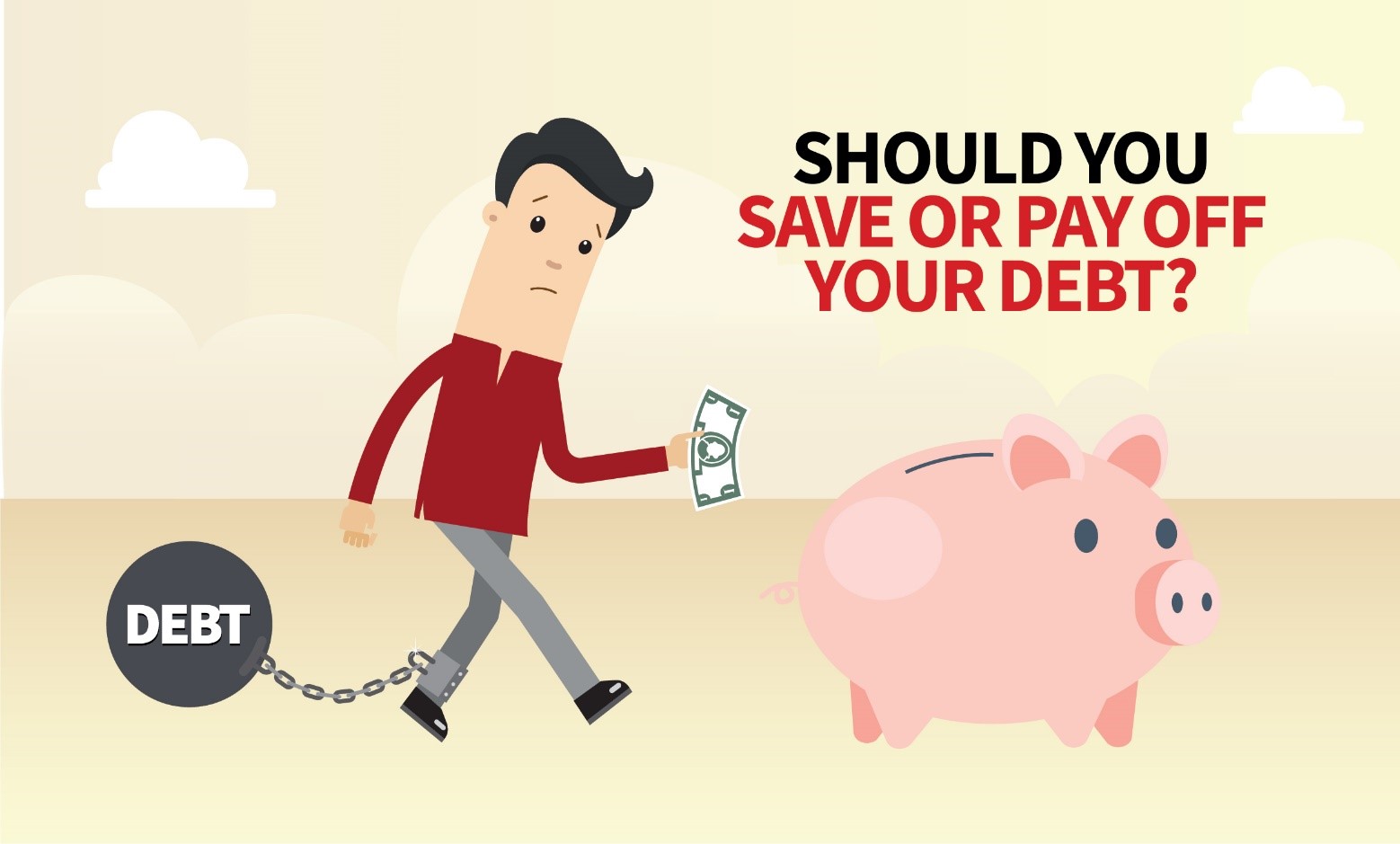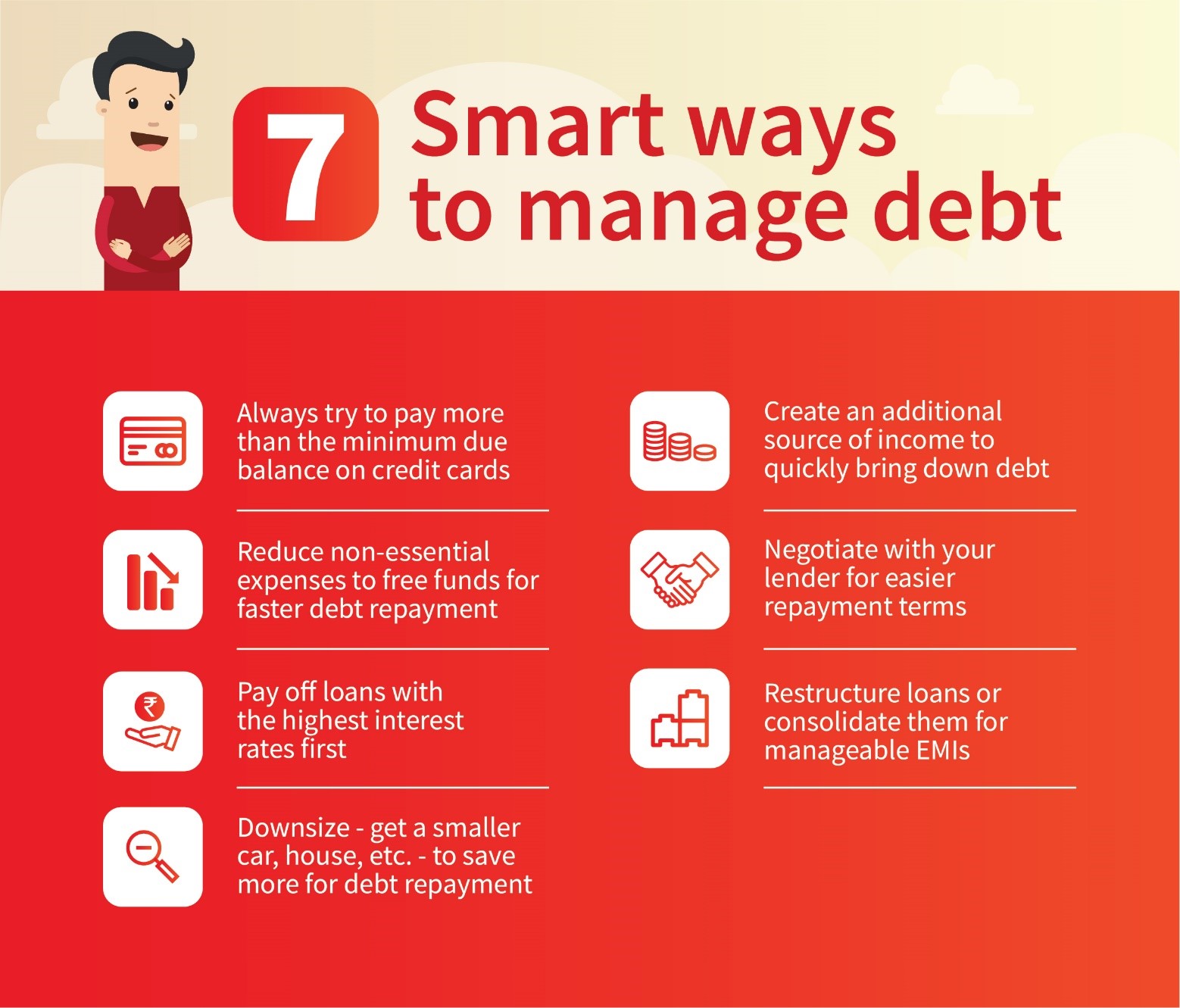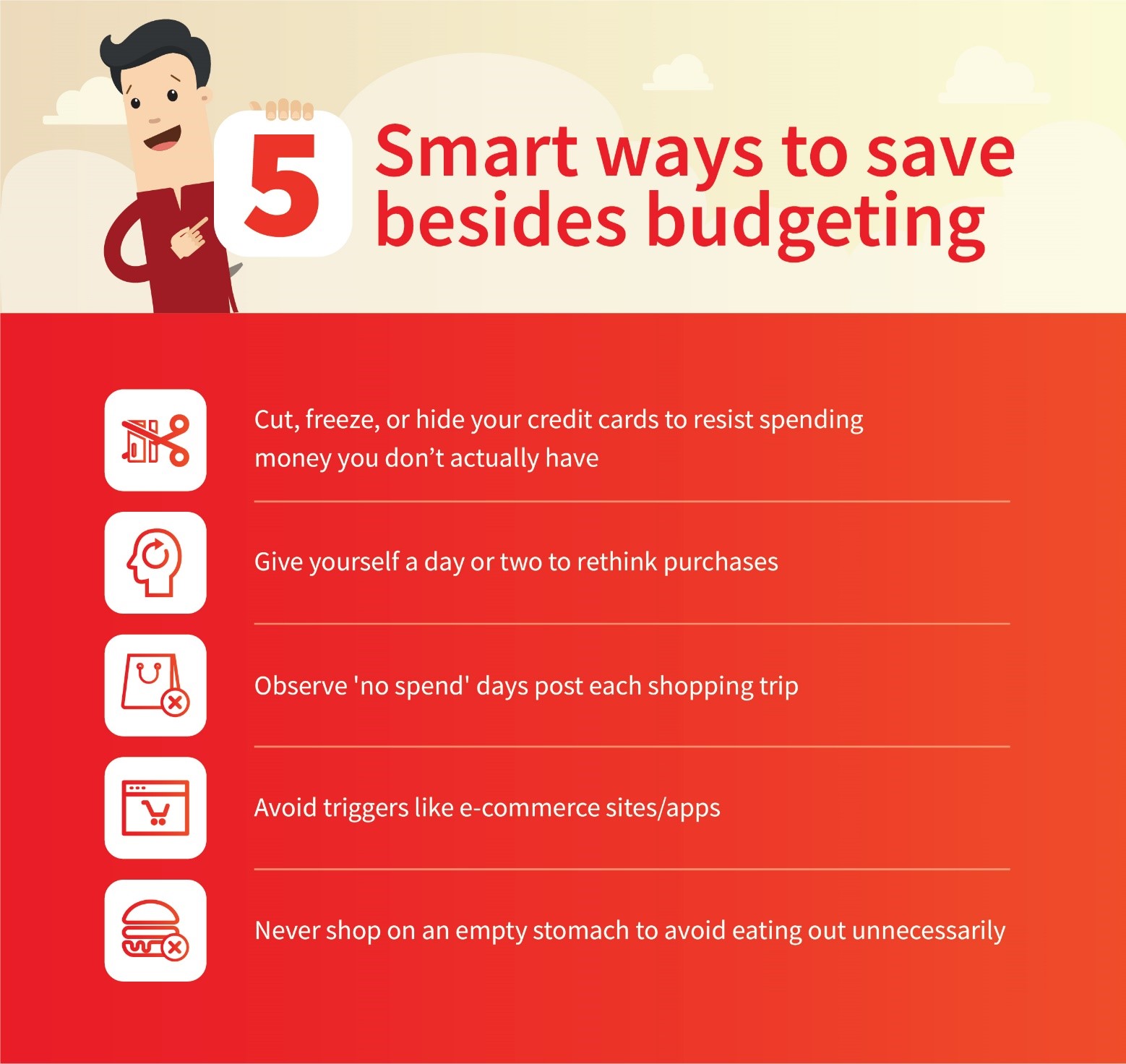Should you save or pay off your debt!

Have you ever had to choose between paying an EMI and setting aside savings for a goal? If yes, you'd know that it can be a tough decision at times. Just as you owe EMIs to your lenders for borrowed money, savings are what you should pay now to your future-self. Both are important, but there could be times when you may not have enough funds to make all payments and have to choose one over another. For instance, if you are struggling to repay multiple loans or have high-interest debt like credit card dues, it is wiser to prioritise those over saving as the longer you take to repay them, the more interest cost you will end up incurring. If your loans grow too much, you may even risk losing your savings to get yourself out of a debt trap or retiring with udhaar.
Watch How to control your dues before they control you to know how Arvind helped Ravi get out of a debt trap.

On the contrary, if you only focus on repaying debt and ignore saving money, you will have nothing to depend upon during emergencies. If it is a big emergency, you may even end up taking another loan to deal with it. That's why if you have manageable debt, it is advised that you regularly pay your EMIs and try to save at least 10-20% of your income. Doing so will help you achieve your goals while building a good credit score. Some loans may even get you some tax benefits, helping you save more. Understanding the pros and cons of repaying debt and saving money can help you decide when to prioritise one over the other.
Watch Why is it important to save money? to see how saving money can make a difference.

As you try to decide whether you should save or borrow, you will have to answer some tough questions! Below we have answered some commonly asked questions that can help you understand when you should save first and when to prioritise debt repayment.
I am trying to save for my retirement, but I end up saving nothing after paying my EMIs and other expenses. What should I do?
Saving for a comfortable retirement is as important as repaying loans, as retiring with debt can be as difficult as having no savings. Reduce unnecessary expenses to free funds for quicker debt repayment. Focus on high-interest loans first. Then, gradually repay your low-interest loans and build a retirement fund simultaneously.
Pro tip: If you still find it difficult to manage your expenses, ask your lenders to restructure your loans or opt for debt consolidation to bring down your monthly debt repayment amount.
I have two large loans and credit card dues. How can I make sure I never miss any payments?
It is important that you pay off your credit card dues as soon as possible to avoid high interest costs. Once that is out of the way, you should set aside at least 5-10% of your income to build an emergency fund while gradually paying off your low-interest loans. This will help you continue repaying your loans even in the event of emergencies like a job loss or serious illness.
Pro tip: Decide how big an emergency fund you would need based on your income and expenses - at least three-six month's income.
Both my credit card bill and health insurance premium are due next month. Which one should I prioritise?
Not paying your credit card bill means you would incur high interest costs. On the other hand, failing to pay the premium on your health insurance could mean you risk compromising on your coverage. Ideally, you should budget for such irregular payments in advance. But in a situation like yours, you should prioritise the premium payment to continue securing your health against emergencies. If you still have some money left, try to pay at least the minimum due balance on your credit card to avoid lowering your credit score.
Pro tip: Break down your insurance premiums into twelve parts and add these to your monthly budget, so you never have to treat it as an unexpected expense.
Should I use my savings to pay off debt?
If you can make pre-payments on your loans by taking up a second job , do that. If the interest charged on your loans are higher than what you are earning on your savings, you can also use some savings to quickly pay off your most expensive loans . Make sure you keep some amount aside to tackle emergencies. It is important to protect your present before trying to secure your future.
Pro tip: Once your debts are under control, start building your savings again. Set auto-debit to transfer the amount that would have earlier been an EMI into a savings account to save for goals.
"Money is a great servant but a bad master. " – Francis Bacon
There isn't a single answer to these questions. It is important to base your decision on your situation - whether it is more important to save or repay debts for you. However, the general advice is to save for your goals while repaying your loans on time. But if you have so much debt that it is not allowing you to live a fulfilling life, start with repaying high-interest loans. It is important that you secure your present. Once your finances get back on track, you can start saving for your future again.
